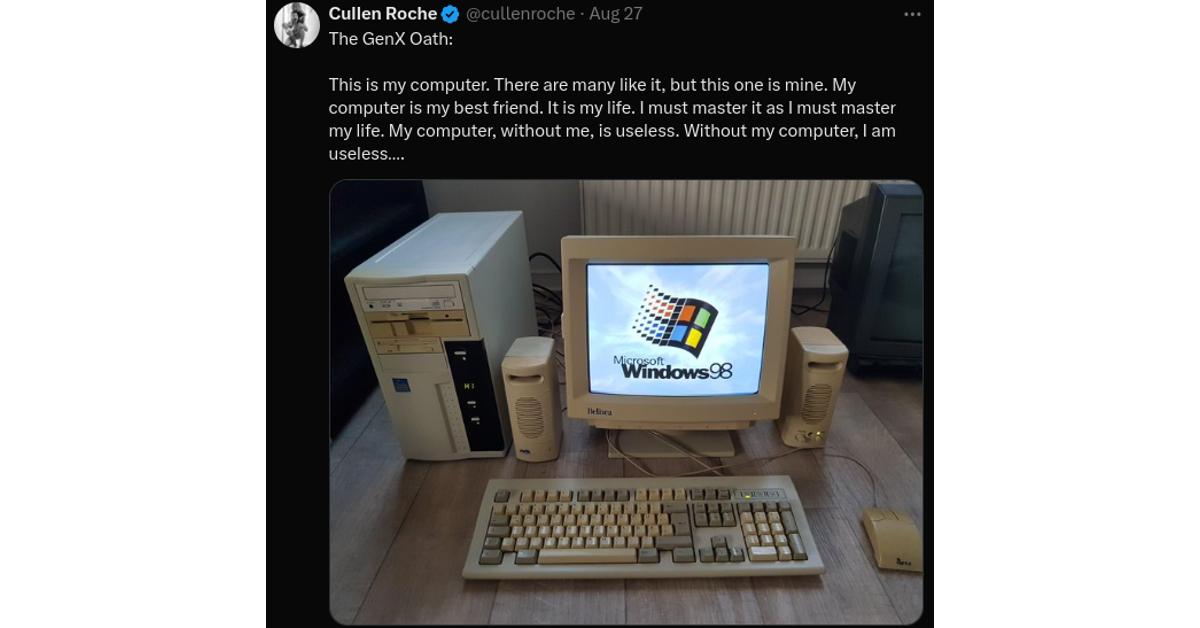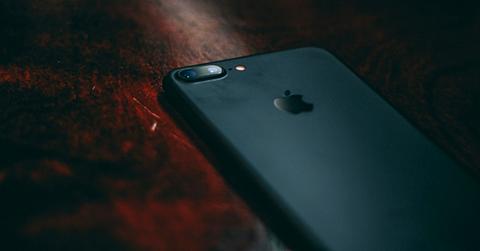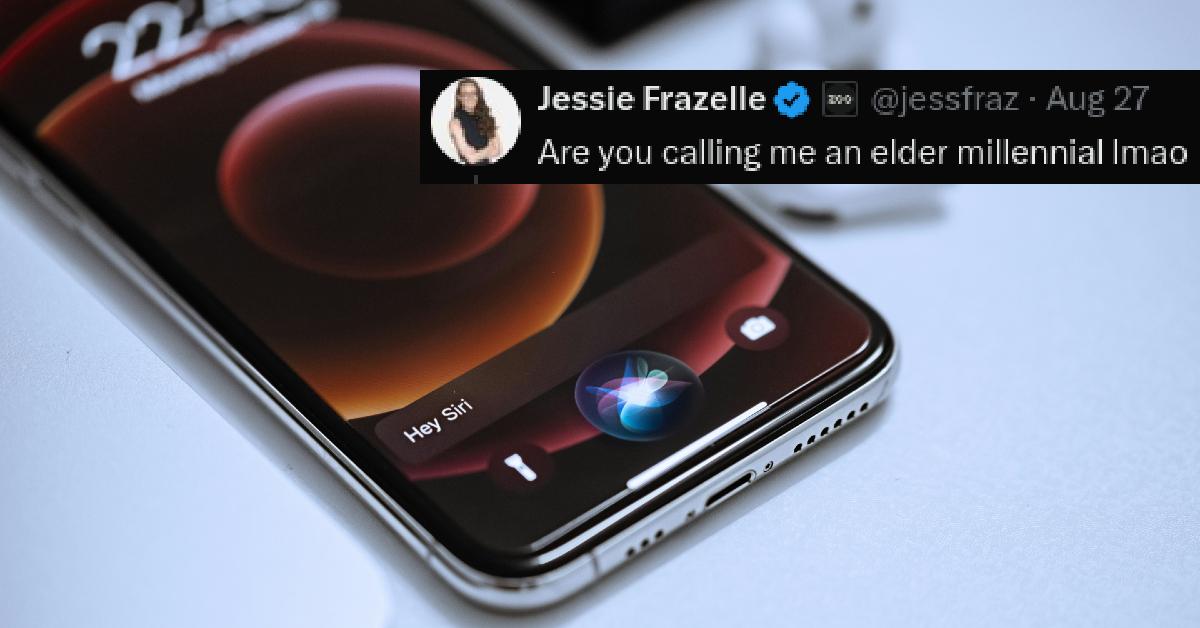Gen Z’s Roasting Millennials for Making Big Ticket Purchases on Desktop, but Never Their Phones
'Gen Z is less tech literate anyway'
Published Aug. 30 2024, 4:34 p.m. ET
Gen Z Roast Millennials for Not Making Big Purchases on Their Phones
Millennials are an interesting generation in that they spent a significant portion of their childhood without cell phones and the internet. And as they grew up through adolescence and young adulthood, consumer technology made massive leaps and bounds giving them an appreciation for the fact that they can have high speed mobile internet access from pretty much anywhere in the world.
However, old habits die hard.
Like reserving "serious business" for laptop and desktop computers.

Something that X user Jessie Frazelle says is considered a millennial trait by Gen Z-ers who think that millennials are allergic to making large purchases on their smartphones.
Instead, they would much rather reserve these important matters when they have access to a computer.
Jessie said she felt "attacked."

While she didn't seem to happy to be called out by younger, Gen Z'ers over the practice, it appears that her post struck a cord with several other folks who replied to her X thread.
One person seemed to think that there's a divide in this type of purchasing practice between elder vs younger millennials.
According to others, it's a question of efficiency.

There were several folks who argued, however, that by making purchases on a desktop you're just being a responsible consumer, because you're able to more efficiently open multiple tabs on your browser and compare the prices, shipping times, coupons, and deals when compared to other sites.
Ever try searching for coupon codes on mobile?

Doing so on a desktop while utilizing keyboard shortcuts and a mouse to quickly highlight and paste a variety of different coupon codes to see if they'll work with your purchase is much easier and quicker than doing so on mobile.
Millennials are more web savvy?

There was one X user who argued that because Millennials grew up in the earlier days of the internet when it was a lawless wasteland that it makes them better versed in shopping methodologies, as opposed to just doing everything "in app."
Research pays off.

There was another commenter who believed that operating on a desktop afforded shoppers the ability to more quickly compare various deals and pull up pros and cons lists of similar products so they can make the most informed purchasing decision.
But simply pulling it up on a smartphone promotes a more "immediate" type of purchasing scenario.
Some felt more "connected" to their computers.

The ability to get more done more quickly is a cornerstone of the desktop/laptop experience, according to several users who responded to Jessie's X post. As a result, they felt some type of affinity towards their personal computers.
Convenience isn't always best.

According to another commenter, they believed that mobile optimized apps and websites are "hiding" certain information that could "mess up" a purchase.
'The Wall Street Journal' says retailers hate laptop buying.

According to an article penned by the popular finance-centric media outlet, "retailers hate that you buy big things on your laptop."
The piece acknowledges that consumers "want to make significant purchases on their laptops" due to the bigger screens and access to keyboards. However, the outlet stated "merchants have more levers to pull on mobile," which could indicate that they would prefer is customers made their purchases on mobile.
That's because mobile purchasing = impulse buying.

Storyful penned a piece highlighting how many online shoppers will begin shopping for an item on one device and then complete the item's purchase on a different one, i.e. seeing something on mobile and then researching it further on their desktop.
However, retailers apparently don't want that.

The Storyful piece went on to state "Mobile devices, due to their constant accessibility, generally facilitate impulse buying."
Retailers want their customers to do less thinking and more purchasing, i.e. they want to facilitate the purchasing process on mobile to be as seamless as possible. You see something and with as few taps and swipes as possible you'll have forked over your hard earned dollars to buy whatever they're digitally shilling.
It boils down to more information.

Fluid Commerce echoed the sentiments many expressed in response to Jessie's X post and it's that bigger screens give consumers access to more information. As a result, they feel more comfortable making larger purchases. The outlet pens: "An average-sized desktop can provide over 3 times as much information as a regular smartphone. So, users are turning to desktops when making larger purchases as they want more information, and can conduct more research, before parting with a large sum of money."
Google ranks mobile optimization.

Even though Millennials may prioritize purchasing big ticket items on desktop, the reality of internet browsing is that mobile is king. Well, that depends on which resource you're consulting with. Allconnect writes that global internet traffic share is 59.92% mobile. However, the Thrive Internet Marketing Agency stated that in August of 2023, 32.34% of all web traffic was rooted in mobile.
Research.com writes that 50.48% of all internet traffic is conducted on mobile devices.
More people have smartphones than computers.

It would make sense that more web traffic is conducted through mobile devices like smartphones. That's because globally, more people own smartphones than they do computers. The Census Bureau reported in 2021 that "smartphones were the most common computing device in U.S. households."
But there's a growing movement of people ditching smartphones.

The Daily Mail reported in July of 2024 that 2.8 million dumbphones were sold in the United States in 2023 alone. This points to a growing trend of more and more people looking for a digital detox from being "always connected."
Cell phone manufacturers are creating "minimalist phones."

Influencers like Jose Briones have been covering the growing return to "dumbphones" where he reviews and highlights different devices that help folks transition to the feature phone life.
Some devices promise smartphone functionality, minus all the distraction.

The Minimal Phone made a splash on Indiegogo, with throngs of folks backing the E-ink display based device that runs Android. The device is designed to be used just with smartphone productivity in mind. Because it doesn't rock an impressive large touch screen, browsing endless TikTok or Instagram reels have to be reserved for another device.
But you can still install popular apps, snap photos, send emails, book Ubers, and use Android Auto in your car.
Products like this may push people to computers for more involved tasks.

Which seems to be the point of these "dumbed down" devices. By making them not as alluring to use, you may not feel as committed to messaging spending as much time on them as you would a current day smartphone. It's a bit more of a commitment to start doom scrolling if you have to bust out your laptop to do so, instead of just reaching into your pocket and vegging out on your phone.

